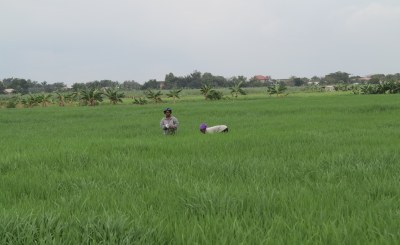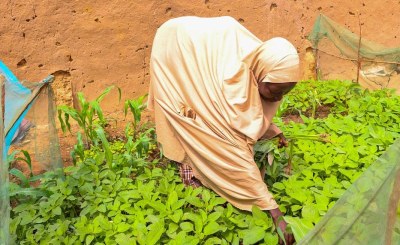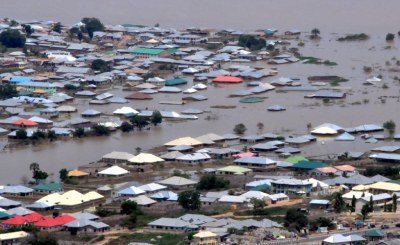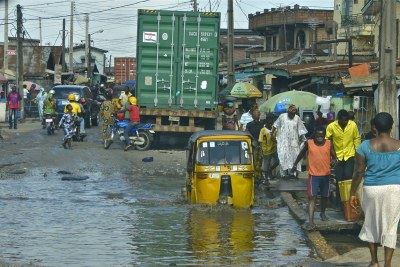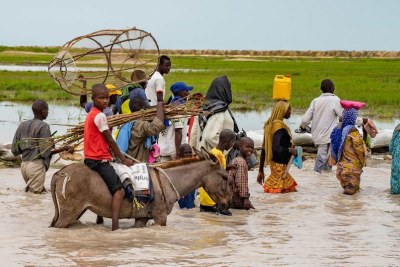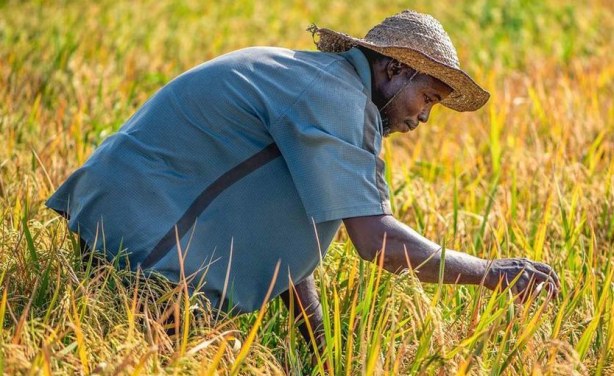-
Nigeria: Niger Farmers Adopt Early Rice Planting to Escape From Flood Disaster
Daily Trust, 9 July 2023
Rice Farmers in Edozhigi, Gbako LGA of Niger State, said they have adopted early planting of rice this rainy season as a proactive measure to escape from the annual flood disaster… Read more »
-
Nigeria: Flood - Edo Govt, NEMA Urge Residents to Relocate to Higher Grounds
Premium Times, 10 July 2023
"But, we are finding it difficult to get them to move; lots of them don't want to go to the camp." Read more »
-
Nigeria: Strengthening Nutrition Outcomes in the Face of Climate Change in Nigeria
Nigeria Health Watch, 6 July 2023
The effects of climate change on food insecurity are direct and substantial. Food production is becoming increasingly challenging and unpredictable as global temperatures increase… Read more »
-
Nigeria: North-West States Take Flood Mitigation, Relocate Potential Victims
Premium Times, 10 July 2023
In Kaduna, the state government said it had dredged River Kaduna as part of measures to reduce triver's annual floodingver and its tributaries. Read more »
-
Nigeria: Floods Leave 2.4m Displaced, 662 Lives Lost
Vanguard, 24 January 2023
The National Emergency Management Agency, NEMA, said, yesterday, that flood disasters, in 2022, left over 2.4 million persons displaced and 662 dead. Read more »
-
Nigeria: Floods Ravage Ondo Communities After Heavy Rains
Premium Times, 25 June 2023
A 17-hour downpour between Friday and Saturday caused heavy floods in the Ondo communities. Read more »
Nigerian Rice Farmers Fight Floods with Climate-Smart Practices
Edozhigi - one of the major rice farming communities in Niger State, suffered severe loss of rice and sugarcane farms in 2022 when floods washed away most of their rice farms which were due for harvesting. After suffering severe losses, the farmers began rice planting earlier, and changed to a variety of seeds that can be harvested within three months of planting.
However, some farmers are not able to engage in early planting due to financial constraints in procuring inputs on time. The farmers are calling on the government to provide subsidised farm inputs to support their farming activities, as the inputs provided by microfinance banks and other organisations often come with high-interest rates that are difficult to repay.
Climate change is having a profound impact on Nigeria's agricultural sector, posing significant challenges for farmers across the country. The country is experiencing more erratic rainfall patterns, rising temperatures, and more frequent extreme weather events. The need for climate-resilient farming techniques and support systems is crucial to help Nigerian farmers adapt to these changing conditions and safeguard their livelihoods.
InFocus
-
The federal government has announced that the death toll a a result of flooding has hit 603 (on October 17, 2022). Speaking in Abuja, the Minister of Humanitarian Affairs, Di Read more »
-
The climate emergency is a real and pressing issue, and Africa is the most vulnerable continent to its effects. The world has borne witness, firsthand, to the devas Read more »
-
Millions are facing hunger and children's lives are on the line in northeastern Nigeria amid a protracted conflict and intensifying climate change, the United Nations (UN) report Read more »
